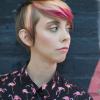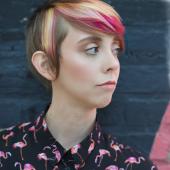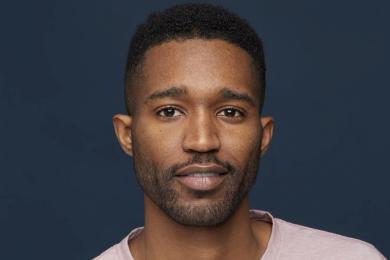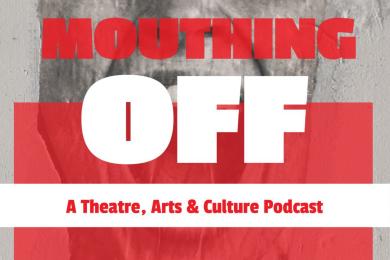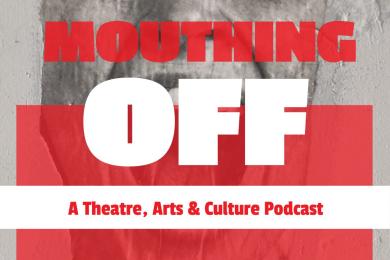Queering the Stage
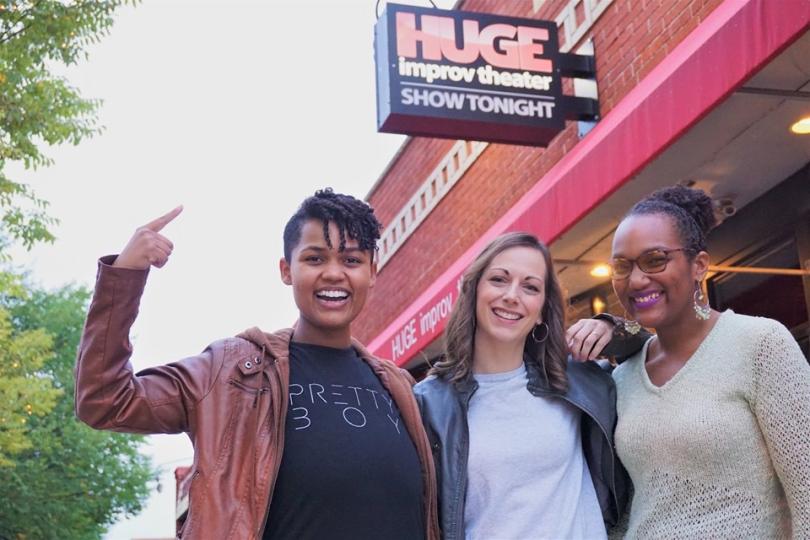
The inaugural Queer and Funny Improv Festival, organized by improvisers Pam Mazzone, C. Michael Menge, and Jada Pulley, will take place November 24th at HUGE Theater. Katie Knepler sat down with Jada Pulley to talk about the festival’s workshops and performances, as well as the city’s burgeoning queer improv scene.
The following interview has been edited for length and clarity.
KK: How did the idea for the festival originate?
JP: It might sound familiar to you based on other festivals, such as Black and Funny, and I’m involved with that as well. There’s so much great queer talent here, and it’s an important part of my identity. To have that baseline of coming together based on identity and history and trauma that we all share and not have to explain that to each other. To just start at a certain level of commonality and to be able to make jokes that other people wouldn’t necessarily appreciate and just have that insider language and feel safe and seen in a very particular way. The idea is to celebrate all of that. It started because queer people are funny!
KK: What are you most excited about?
JP: I’m excited to have it happen. I was just having a conversation...and one thing that came up is how we’re always labelled as man or woman, or with he or she pronouns, and never having a character be explicitly made genderqueer or nonconforming or whatever. I’m excited to be in a space where we can have those conversations and have a space open to that—where you can just have a polyamorous relationship and have it be totally normal. And to tell stories that aren’t often told in the same way or told point blank. I’m excited for Hannah [Wydeven]’s workshop on challenging traditional storylines and queering the stage. I’m excited for the panel, because there’s some questions I still have. I’m just excited for this conversation to begin, and hopefully it is just the beginning.
KK: Can you talk more about the panel?
JP: It’s called “Out of the Closet, Onto the Stage.” The questions are based on a survey that went out to the queer improv community.
KK: Tell me about Denzel Belin’s workshop, “We’re Here. We’re Queer. Now what? Exploring Queer Identity in Ensembles.”
JP: One of the things that came out from that survey is people wondering how to play together in groups that are mixed queer and non-queer. Denzel ran with that side of it and is going to be working together in ensembles with different types of people. He’s labelled it as diagnostic. It’s an ensemble-building class, and you have to know yourself to be in an ensemble.
KK: Do you see this becoming an annual event? How do you see it growing and evolving?
JP: Hell yeah! We’ll see how it goes this first year and what people really respond to and what they want more of, but I see it growing. It was so hard to have it be one day, just because I didn’t even realize myself how many queers there are out here on these stages. Even though an improviser can be queer and out and proud, it doesn’t necessarily come out onstage because of heteronormativity. So you wouldn’t know. When we did start thinking about, “Oh yeah, there’s this person, there’s that person, there’s this group,” there just wasn’t enough space in our four performance spots to highlight everyone. There’s many days worth of content, but I’m excited to have it grow and be longer, so we can have more room to just rock it out onstage.
KK: You’ve mentioned the number of individual queer imrpovisers locally, but are there many queer ensembles?
JP: It is a question of what makes it queer, which is also one of the panel questions. There can be multiple queer improvisers in a group, but they don’t necessarily place that front and center. So you might not necessarily think of it as a queer group, but there’s a lot of groups that do center their queerness, like Bi Bi Bi, Invisibi, the Gay-Straight Alliance, and some other groups that have it right in the name. And then there’s a lot of other ones that have a bunch of people that are queer—queers out there doing their thing—but not wearing a rainbow flag across their face.
KK: What do you hope the non-queer participants and audience members will take away from the festival?
JP: We’re here, honestly, in a nutshell. Because like I was saying, it is easy for it to slip under the rug because of all that “great” heteronormativity. Queer people have to relate to straight love stories all the time, but vice versa. It’s like “Oh, wow! It’s still a human experience!” Having that visibility for people who are not queer, or people who are questioning—for me it is that question of visibility and being able to tell stories that aren’t always being told. For me personally, it’s fine if you as a straight person navigate queer relationships onstage. I want people to walk away knowing we’re here, we exist, our stories are valuable, and we’re funny.
KK: Improv has traditionally been dominated by cis, straight, white men. Do you see the demographics of the local improv community challenging this trend?
JP: I think the stereotype is a straight white guy in plaid. I think even in my short little two years here, it has constantly been expanding. The jams at HUGE [for different members of marginalized communities] are doing really great work and bringing in new people. John [Gebretatose] is out there hustling. HUGE is like the nexus. They have been such a leader in trying to be intentional and inclusive, like setting boundaries and making it a safer space for people, so you can bring people into an environment that isn’t trying to be toxic. I’ve had the privilege of seeing little baby POC improvisers start and then come and rock it out onstage. I’ve heard the stereotype of “plaid-wearing white guy,” but I don’t really experience that most of the time. It’s still around, but I feel like we’re making space for those new voices. It’s a slow-ass battle, but I’m seeing more people come up, and more people not just being in shows but trying to create their own, which is always good, and directing. I think that it’s definitely changing. Already there’s so many more women and non-binary folk (more so cis women).
KK: How has improv allowed you to explore and/or celebrate your own queer identity?
JP: Improv has just been so useful for me in general. Improvathon is happening, so I’ve just been reflecting on how much HUGE has given me. It’s where I found a community here, and it’s where I’ve found my voice. It’s taught me to be more confident in myself and what I have to offer, like the refrain, “You’re enough as you are.” People will sit and watch you onstage for twenty minutes in silence. You’re bringing that unique perspective, and that’s all that you need. They have to have the thing in the [HUGE] Student Bill of Rights, like “Hey, this is not a substitute for mental health professionals,” because it is so therapeutic, you know? It’s helped me in allowing me to be bolder, be prouder. I want to be able to share that joy and the community that it’s provided me. I want to be able to give that to more people who aren’t already involved in it, because it is so great and more people should know about it.
